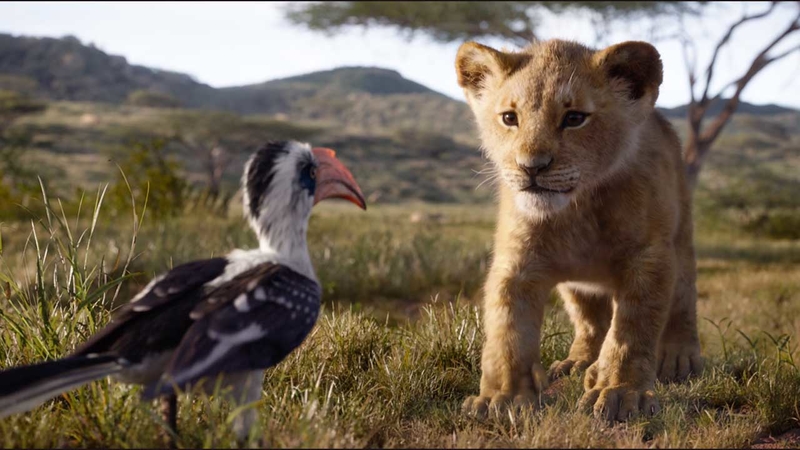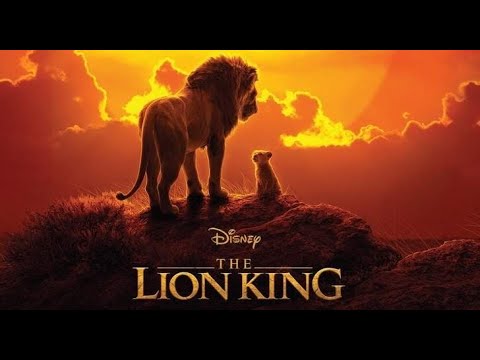In 1994, Disney released a film they heavily advertised as their most original story to date. The film became an instant hit, making The Lion King a household name. Now, 25 years later, Disney has released a “re-imagining” of this hit with photo-realistic computer-generated lions and a star-studded cast. However, the film has done nothing different than the original, besides increase its value.
One of the most unfortunate, yet unsurprising, aspects of the film is that it sticks to the source material incredibly close. So close, in fact, that I don’t feel it is necessary to put in a spoiler warning for any readers. I’m not saying that the film should completely disregard its predecessor but there was no originality in the film – nothing that puts the new The Lion King on another level compared to the original. For a re-imagining the film ultimately falls short – least of which is in the ways it doesn’t “re-imagine” the original. In fact, the most glaring ways in which the film diverges is in what the movie decides not to “re-imagine”. Two of the most memorable aspects of the original 1994’s The Lion King get brushed, glossed-over, or removed – many of Rafiki’s scenes are left out and some of Scar’s more menacing aspects are removed – and that, ultimately, flattens the once well-rounded and remembered characters from the original.
The star-studded cast is another problem with the film. It’s clear that the two biggest selling points for this film are the cast and imagery. The unfortunate part of choosing to have a cast of celebrities instead of voice actors is that the emotion goes away without the interaction. Timon and Pumba feel a lot less like friends in this film and more like two celebrities in separate voice-over booths. In fact, most of the voice acting in this film feels as if most of the cast have never interacted with one another before – they couldn’t even get Beyoncé to come for the cast photo. An empty space was left for her where she was photoshopped in later. Aside from the always wonderful James Earl Jones revitalizing his role as Mufasa, the rest of the film’s cast falls off the edge of Pride Rock.
The biggest problem of the film is the expressions and emotions portrayed in each scene, or the lack of portrayal, as it were. When the focus is shifted from a cartoonist drawing to a more realistic approach, the ability to read the emotions of these animals disappear. Lions, warthogs, and meerkats don’t express their emotions in the same way humans do. They don’t smile, frown, or cry, and this removal of being able to read the lions faces causes the viewer to lose connection with the characters and what they are going through. When characters are happy or sad, the star voice actor will tell us how they feel, but we can’t see it. It feels as if the producers knew most people had seen the original and counts on them remembering how the character felt.

Simba looking… excited?
It should, however, be noted at what amazing technical feats were achieved with this film. The 2019’s The Lion King looks incredible. From shot to shot, the film feels as if a cameraman stumbled into a dimension where the film’s events were actually happening. Each shot makes the viewer feel like the film must have some base in reality, but it is surprising to learn that every aspect of the film was created digitally. Pride Rock, Timon, Pumba, Mufasa, and Simba have all been recreated in a world that is so pleasurable to the eyes, it can make you forget how closely the film clings to the previously established story.
With a star-studded cast, groundbreaking graphic work, and a preexisting fanbase, the expectations were put incredibly high for 2019’s The Lion King. However, the film fails to do anything new with the original source material. The film stays so tightly to the original, that at my screening of the film, when the projector burnt out at the climax of the film, I wasn’t worried. I knew since I had the 1994 DVD copy at home, I could finish the film later. I’d call it a spoiler warning, but if you saw the original, then you know the story of this “re-imagining.”
At this years Academy Awards The Lion King (2019) was nominated for Best Visual Effects, ultimately though, the Oscar award went to the film 1917.
Final Review Score
![]()


Recent Comments